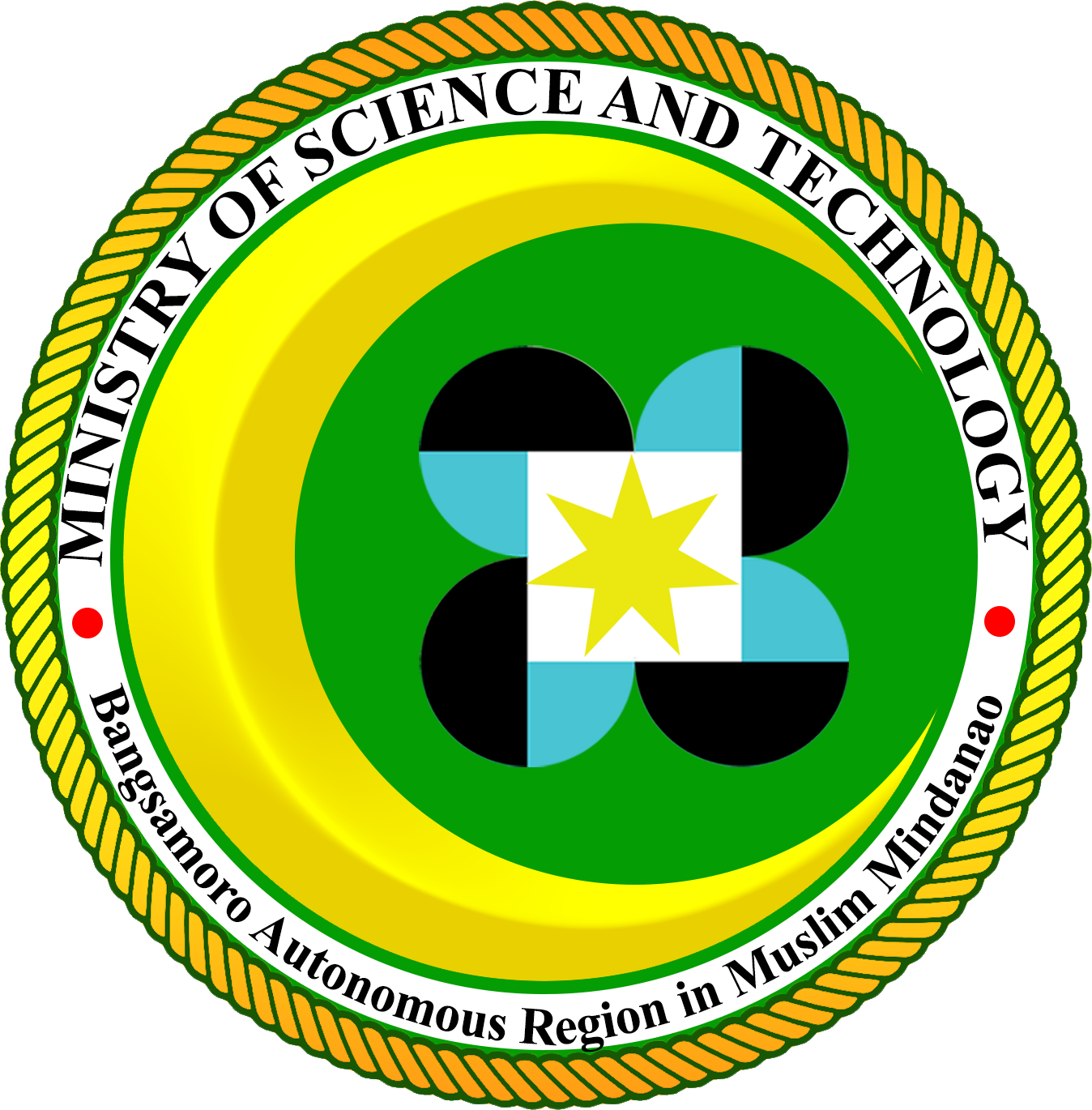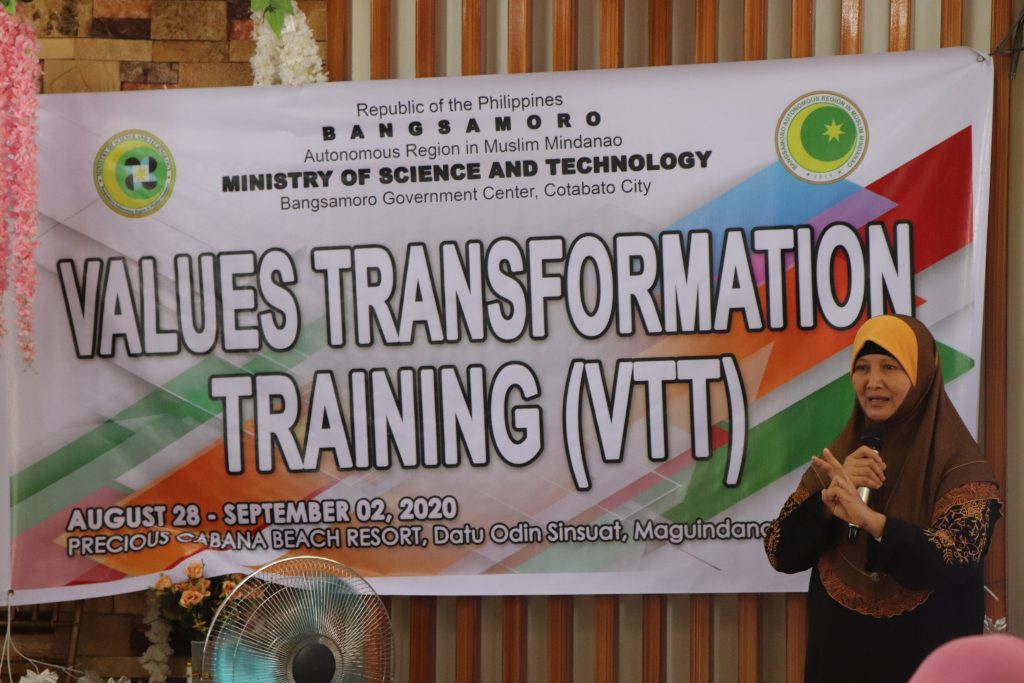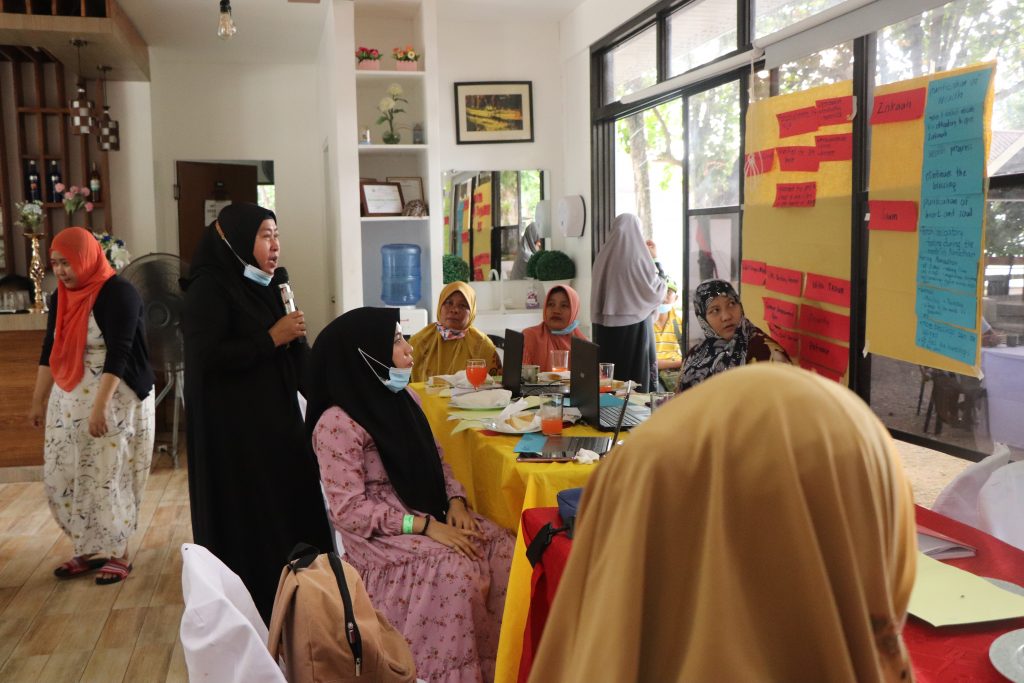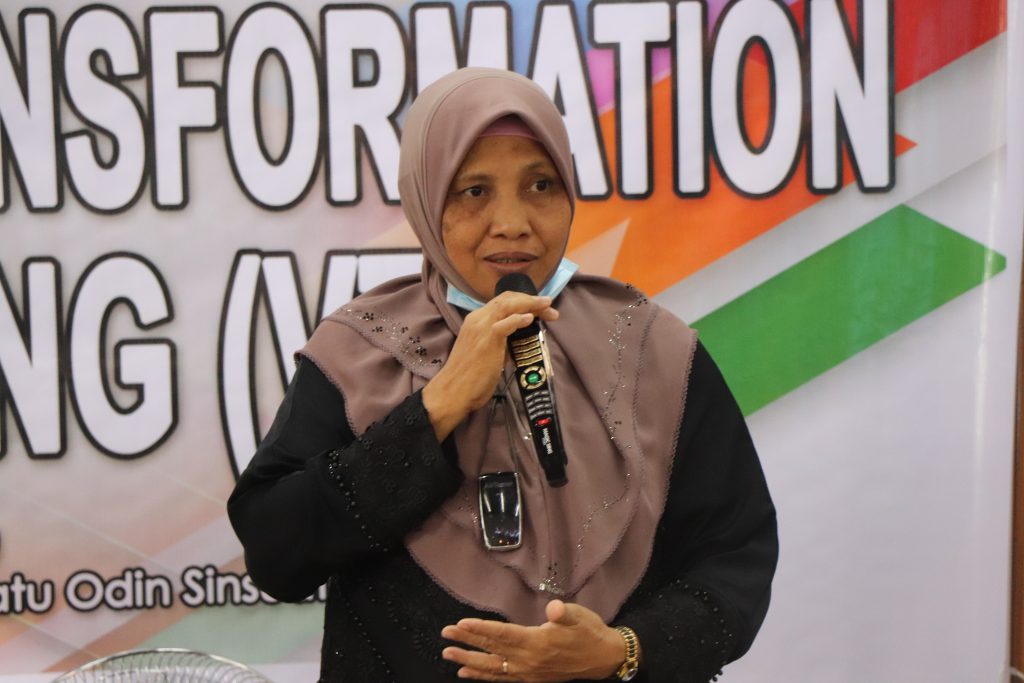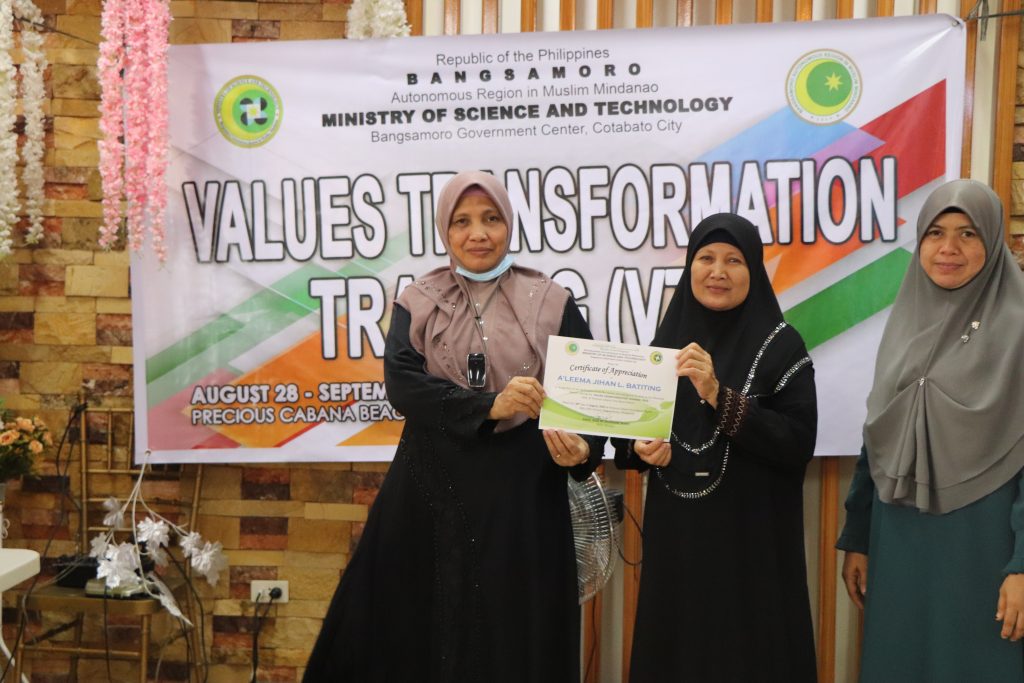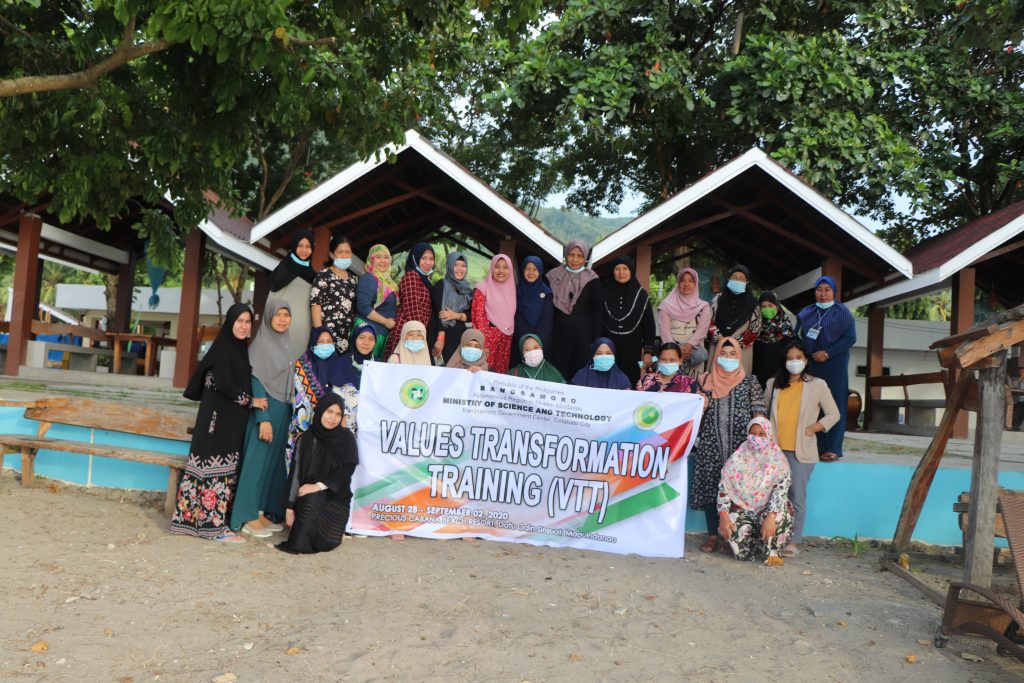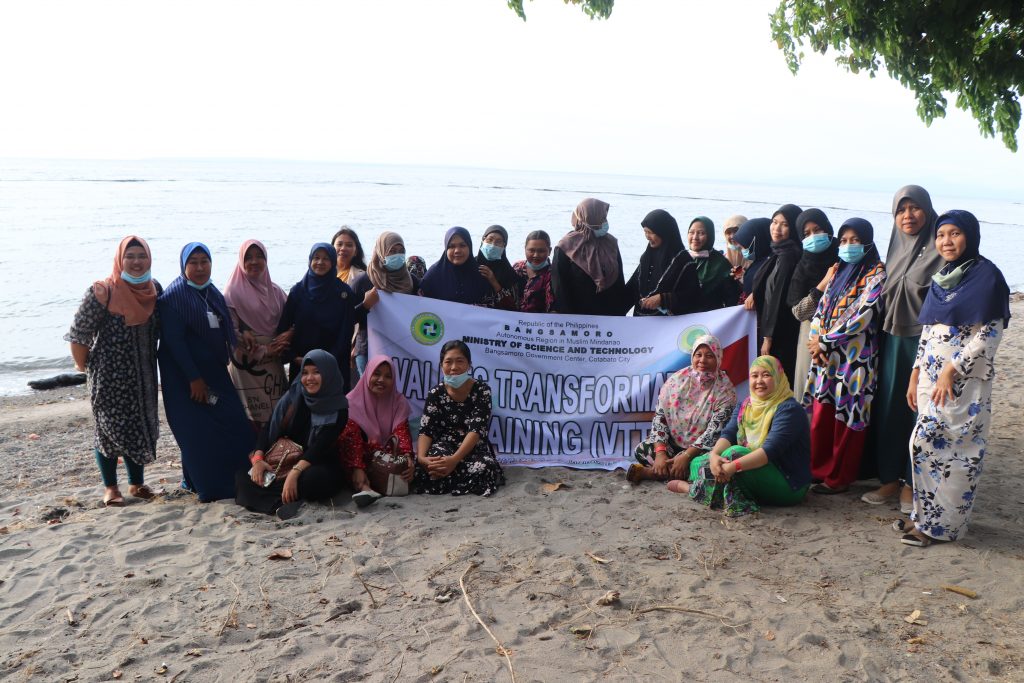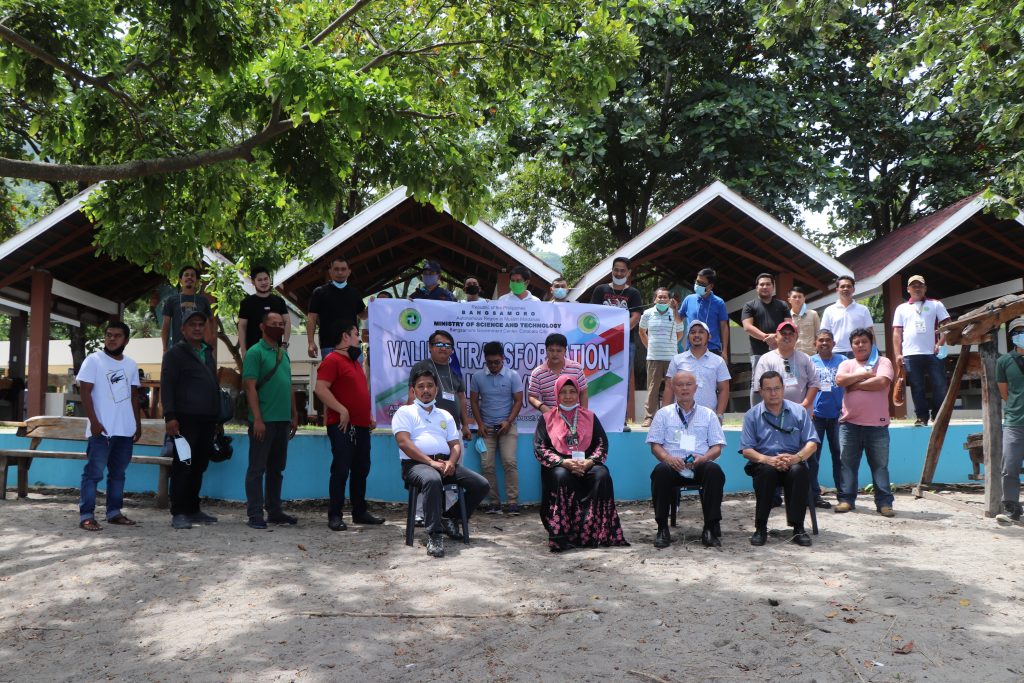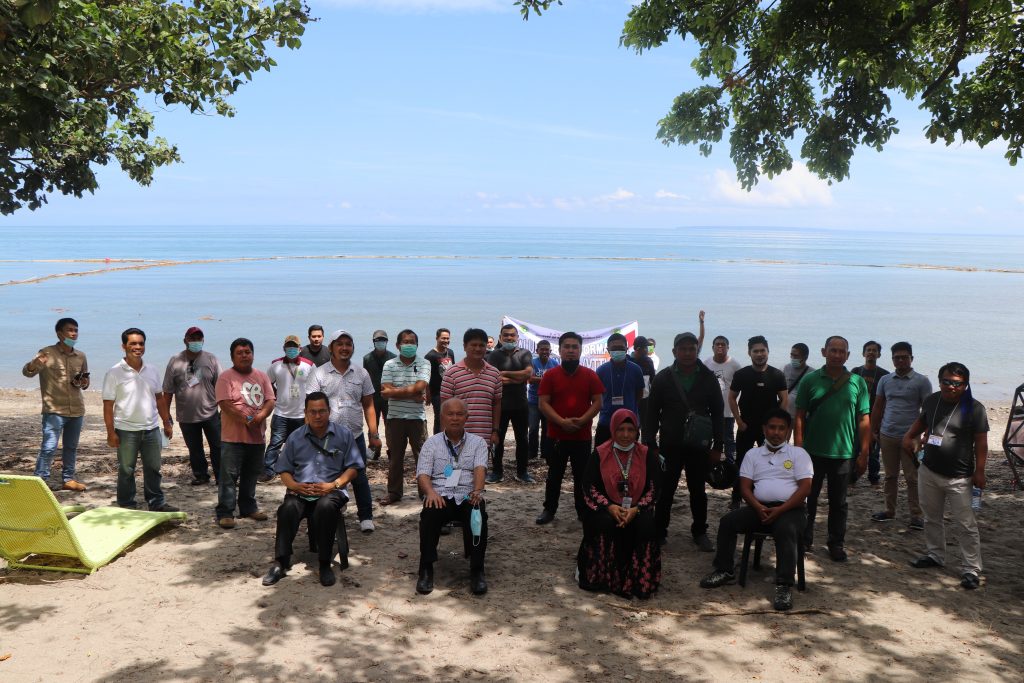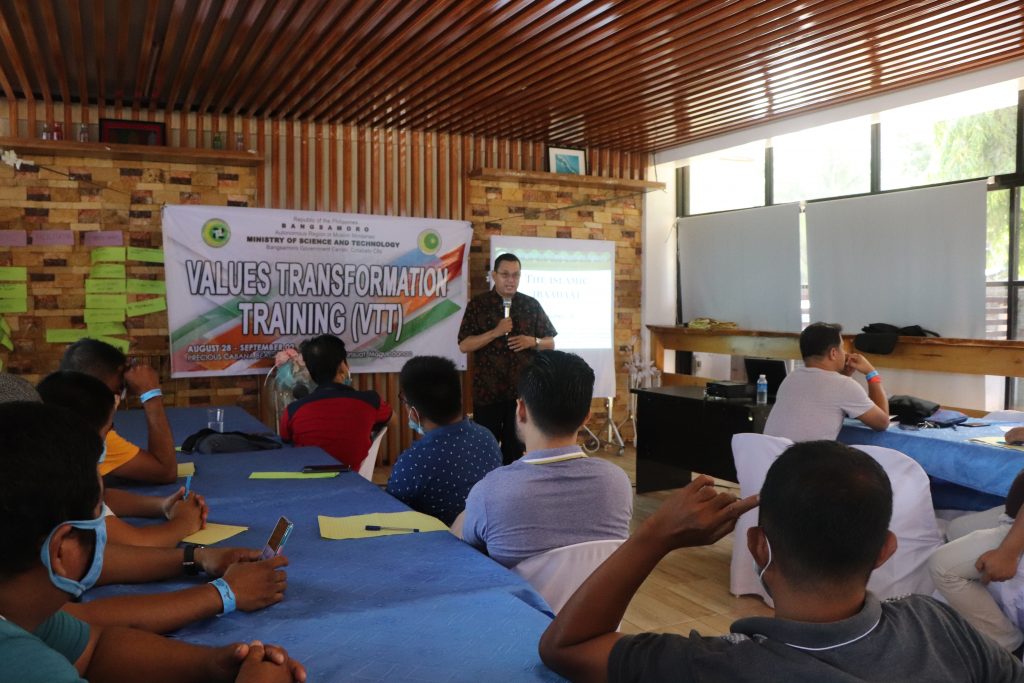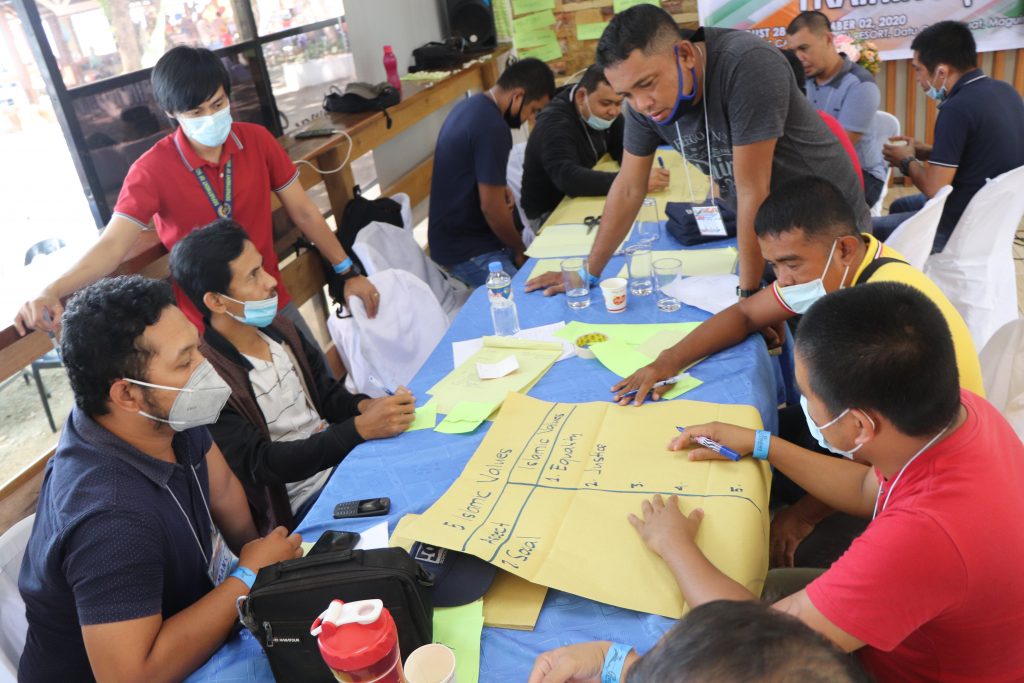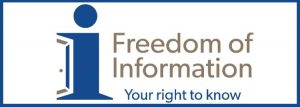BANGSAMORO, Philippines – Sixty Ministry of Science and Technology (MOST) employees went through values transformation training (VTT), a specialized program that instills Islamic values and principles to trainees. It aims to build moral character [of the trainees] anchored to BARMM’s commitment to Moral governance.
“Dapat nakikita mo sa staff na whenever may gagawin sila sa isang bagay, ginagawa nila yung best para madeliver yun,” MOST Minister Aida Silongan said in an interview, emphasizing the importance of integrating moral character in delivering public service.
(You should see in the staff that whenever they do something, they do their best to deliver it.)
“Ginawa natin ang Values Transformation Training kasi ito yung alam nating instrument para maisabuhay ang moral governance policy ng Chief Minister,” she added, basing [it] on the Interim Chief Minister Al Haj Murad Ebrahim’s articulation of moral governance as BARMM’s core value in governing the region since its inauguration.
(We did the Values Transformation Training because this is the instrument we know to implement the moral governance policy of the Chief Minister [Ahod ‘Al Haj Murad’ Ebrahim].)
VTT focuses on revitalizing the Islamic faith of the employees, putting into life the values of honesty and conscience in serving the Bangsamoro people.
“The way they deliver their jobs- their deliverable, you can observe the ‘itkan’ or perfection in their work. If you are working, your goal is to achieve the best on your task, not merely for compliance,” Minister Silongan said as she described her employees after the VTT.
She stressed out that moral character is not confined into one religion, which is the same with public service- it does not serve one group of people, and government employees or public servants must adhere to moral principles in delivering efficient and effective service.
“Huwag nilang tingnan ang Islam individually. Kumbaga hindi nila dapat gawing basis ang isang Muslim na may ginawang mali at i-generalize ang lahat dahil tao lang tayo at minsan nagkakamali,” Minister Silongan added.
(They should not look at Islam individually. In other words, they should not make a Muslim who has done something wrong as [their] basis and generalize everyone because we are only human and sometimes [we] make mistakes.)
Traversing boundaries and faiths
The training is not solely for Muslim employees. It is specially crafted for other faiths, too, since MOST employees are composed of diverse religious affiliations.
Gladys Paglinawan- a registered chemist from Agusan del Sur and a non-Muslim who works as a regular Senior Science Research Specialist at MOST, said VTT is her first exposure to the teachings of Islam.
Paglinawan is a Seventh Day Adventist Christian believer who is new to the Bangsamoro region.
“Though I am not a Muslim, sana ma-encourage ang lahat na Muslims are not we think they are. VTT will hopefully guide us to implement the Islamic values in our services.” Gladys said.
(Though I am not a Muslim, I hope everyone will be encouraged that Muslims are not [what] we think they are. VTT will hopefully guide us to implement the Islamic values in our services.)
In the course of the training, she learned to integrate the values of timeliness, patience, and excellence in her daily tasks. Even if her faith is different from Islam, she believes that the same values apply to all walks of life.
“So long as alam natin ang tama- righteous in terms of conduct, in terms of how you do things- as well as hindi tayo nakakapagpatagal sa implementation ng mga activities, siguro I’ve reached the point na yun, yun po ang indicator ko… you are doing what you have learned in the values transformation training.” Gladys shared.
(So long as we know what is right- righteous in terms of conduct [and] in terms of how you do things- as well as we do not delay the implementation of activities, maybe I’ve reached that point, it’s my indicator… you are doing what you have learned in the values transformation training.)
In addition, Al Rhasid Panasang, a Muslim, the information and technology staff of the ministry, believes that every action simple or complicated contributes to the development of oneself and to the organization. VTT taught him to understand the consequences of his daily choices. He shared his learning about the importance of time management and commitment to work.
One of his samples he said: “Malate ka lang ng 10-15 minutes, sa VTT malalaman mo ang priorities at kapag ma-late ka may corruption na nangyayari.” (Even if you are late for about 10 to 15 minutes, in VTT you will learn your priorities and if you are late there is already a [time] corruption.) VTT helped him to be a better employee and a Muslim.
The training lasted for three days and nights in Precious Cabana Resort, DOS Maguindanao.
Extending values transformation to all ministries
Minister Silongan proposed a resolution in the parliament to institutionalize the VTT to all ministries. It aims to inculcate in the bureaucracy the principles of moral governance from rank-and-file employees to top management leaders.
“I authored this bill para meron tayo ng pamantayan at leverage kung ano talaga ang ibig sabihin ng moral governance. Malaman rin natin kung ano ang framework at limitation ng moral governance sa region,” Minister Silongan said.
(I authored this bill so that we [will] have basis and leverage on what moral governance really means. [So] we also know what the framework and limitation of Moral governance in the region are.)
Currently, the bill is in its last leg of interpolation. The parliament had also conducted focus group discussions in various sectors of the region, such as settlers, indigenous people, stakeholders on the island, and mainland provinces to gather insights and suggestions.
“Ang moral governance yung paggawa ng bagay na naaayon sa executed na result sa paggawa. Kumbaga sa pondo, hindi mo dapat idivert ito kahit saan. There should be honesty and transparency, magko-contribute ito sa no corruption. Strictly speaking walang corruption,” Minister Silongan emphasized.
(Moral governance is doing something in accordance with the executed result of work. In terms of the fund, you should not divert it anywhere. There should be honesty and transparency. It will contribute to no corruption. Strictly speaking, there is no corruption.)
